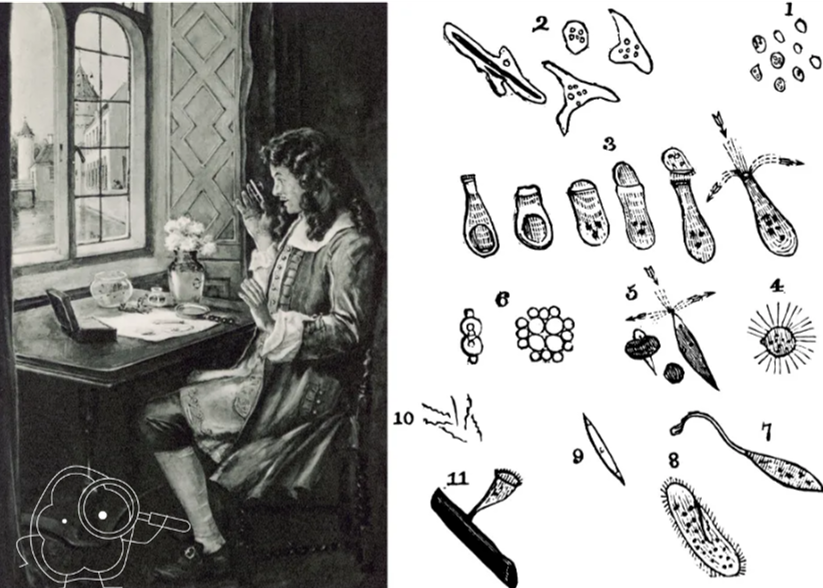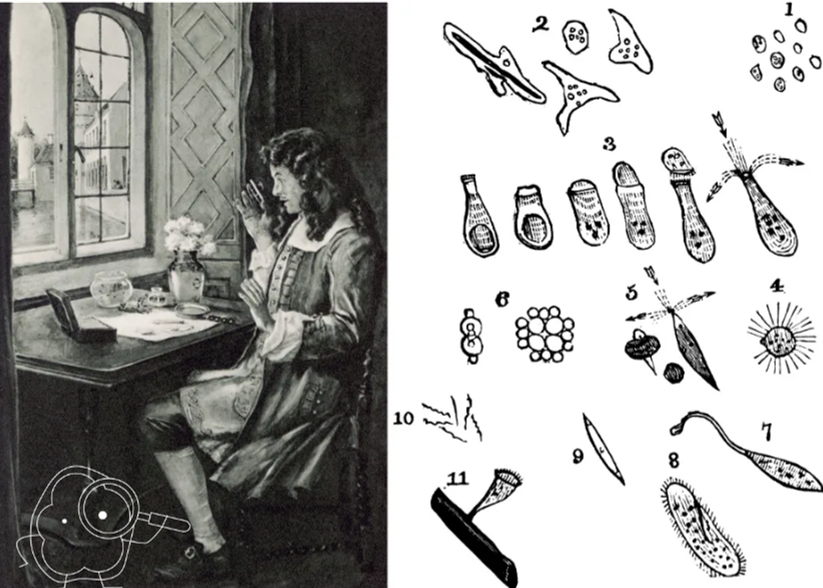Der Darmbakterientest, der Ihnen einen Einblick in Ihre Gesundheit gibt
- Mikrobiom -Testkit
- 16S -Analyse
- Wissenschaftliche Erkenntnisse
Erfahren Sie mehr über
die Mikrobiota
We go back to the year 1676. Antonie van Leeuwenhoek then made a discovery that changed science forever. He had a fascination with lenses. As a result, this Delft businessman invented the first microscope, which could magnify objects up to 300 times.
With his microscope, he could view microbes down to 1 micrometer. (1 micrometer is 1 millionth of a meter or 1 ten-thousandth of a centimeter. So very, very small!)
Van Leeuwenhoek called the microbes he saw “animalcules. He found them in almost everything he examined with his microscope. In saliva, feces and even in water.
He described what he saw in scientific journals. And that is why he is considered the founder of microbiology; the science of microbes.

Not so long ago, we investigated the microbiota with culture methods. With this method, we tried to grow bacteria individually in a petri dish.
Unfortunately, this was not so easy because most intestinal bacteria are anaerobic. That is, they die when they come in contact with oxygen. In addition, some bacteria need nutrition made only by other bacteria. If you don't know which bacteria make it, you can't grow them separately.
Today we use a technique that maps all the bacteria. This technique is called “16s rRNA analysis.
Every bacterium has a nucleus that contains DNA. DNA contains all the information a bacterium needs to live. We look at a specific piece of DNA, which we call a “gene. This is how we know which bacteria are in a piece of stool.
We don't look at all the DNA, we look at the “16S rRNA gene. This piece of DNA stores the information for a tiny protein factory that the bacteria can make. These protein factories are so important that all bacteria have them. Yet there are small differences that are unique to each bacterial species.
KvK nummer: 65867637
Website door: Ratio Design
Diese Website verwendet essentielle Cookies, um die korrekte Funktionalität zu gewährleisten. Um unsere Website zu verbessern, können wir auch optionale Cookies verwenden.
Mehr Informationen